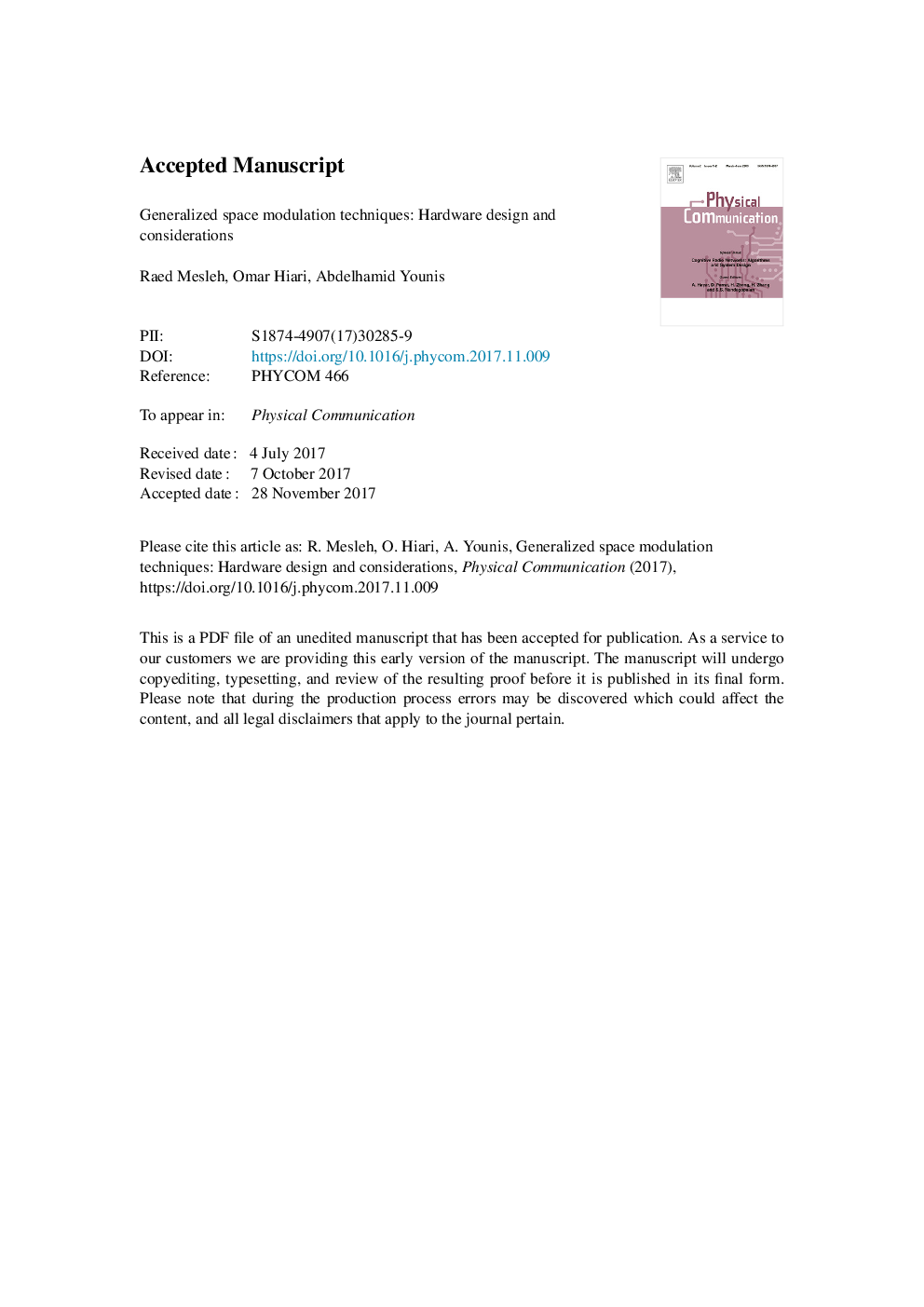| Article ID | Journal | Published Year | Pages | File Type |
|---|---|---|---|---|
| 6889172 | Physical Communication | 2018 | 28 Pages |
Abstract
Generalized space modulation techniques (GSMTs), such as generalized space shift keying (GSSK) and generalized spatial modulation (GSM), activate a block of transmit antennas at one time instant to transmit the same data symbol. The aim is to allow the use of arbitrary number of transmit antennas not necessarily power of two. In this paper, novel generalized quadrature space shift keying (GQSSK) and generalized quadrature spatial modulation (GQSM) are presented and analyzed. It has been debated in the literature that these schemes require a number of RF-chains equal to the number of active antennas. In this paper, the design of the transmitters for all GSMTs with optimum number of required RF-chains are discussed and hardware limitations are briefly addressed. A general framework for analyzing the average bit error probability of all these systems is presented and shown to accurately predict the error performance over Rayleigh fading channels. Besides, receiver computational complexity, transmitter power consumption and a rough estimate on the hardware implementation costs for all these schemes are discussed and compared. It is shown that the transmitter implementation of all these schemes requires at most single RF-chain and in some cases no RF-chain is needed. In addition, it is revealed that GQSSK scheme outperforms all other systems and demonstrate the best error performance with low complexity, very low power consumption and modest implementation costs.
Related Topics
Physical Sciences and Engineering
Computer Science
Computer Networks and Communications
Authors
Raed Mesleh, Omar Hiari, Abdelhamid Younis,
